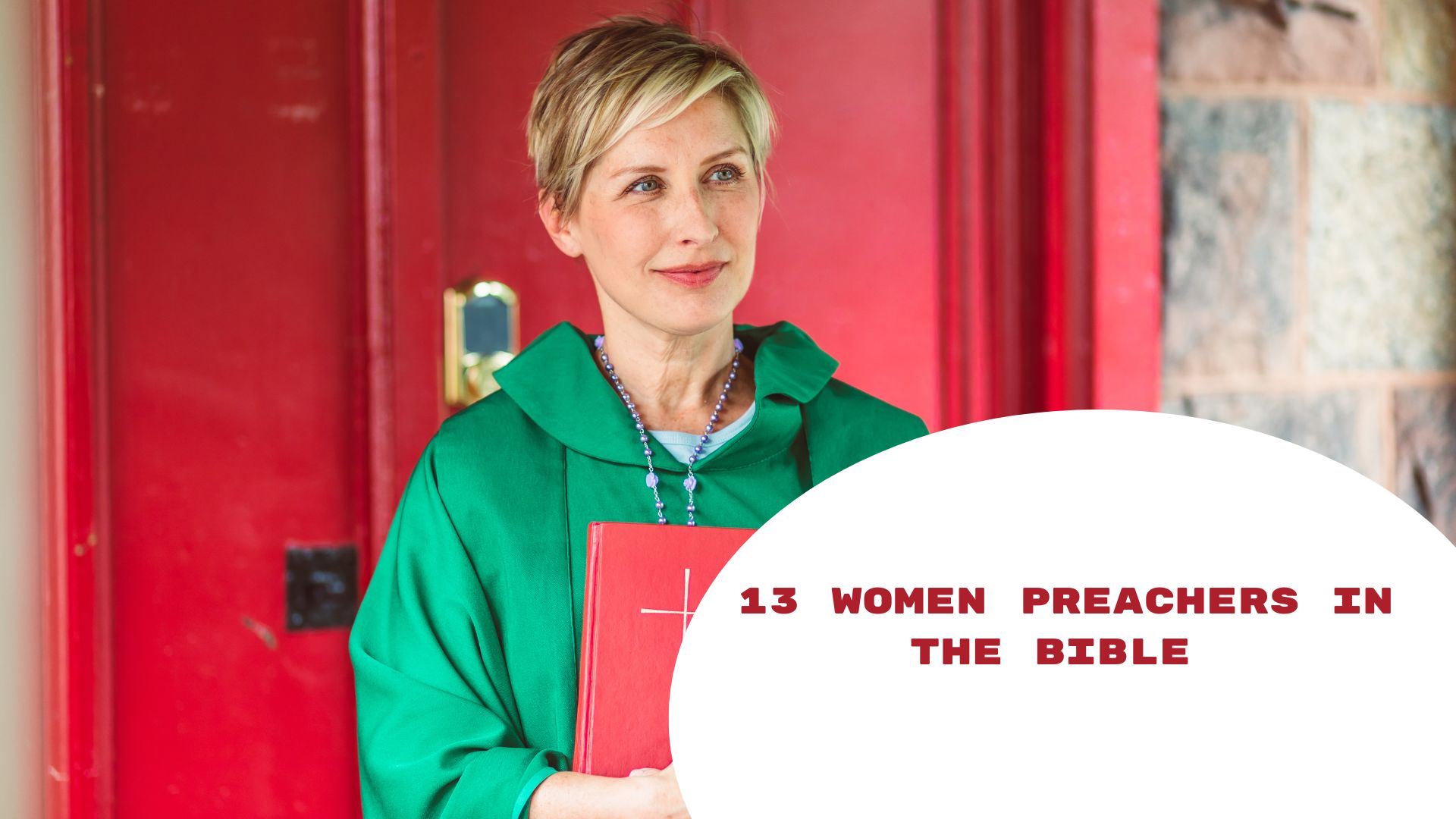Doubt can be a natural and frequent experience for individuals who practice faith, but it can also be a potent source of courage, solace, and inspiration.
Doubt can take many forms, including doubting one’s religious convictions, having second thoughts regarding the existence of a higher force, or going through a crisis of faith.
These uncertainties can be difficult to get through and upsetting and perplexing. However, there are methods and exercises that people can employ to strengthen their faith and get over their doubts.
In this post, we’ll look at how to overcome Doubt in faith in your spiritual convictions.
What Happens When We Doubt God?
Humans naturally experience doubts and uncertainties in our lives, including doubts about our faith and relationship with God.
Doubt can be a challenging emotion to navigate, leaving us confused, anxious, and even fearful.
In this artist will is what happens when we doubt God and offer guidance on overcoming Doubt and strengthening our faith.
We May Struggle with Prayer
One of the first things that can happen when we doubt God is that we may struggle with prayer. Doubt can cause us to question whether God is listening to us or our prayers are making a difference.
However, the Bible reminds us in James 5:16 that “the prayer of a righteous person is powerful and effective.” Even in our doubts, we can continue to pray and trust that God hears us.
We May Feel Disconnected from God
Another consequence of Doubt is that we may feel disconnected from God. Doubt can cause us to question whether God is present in our lives and whether He cares about us.
However, the Bible reminds us in Romans 8:38-39 that “neither death nor life, neither angels nor demons, neither the present nor the future, nor any powers, neither height nor depth, nor anything else in all creation, will be able to separate us from the love of God that is in Christ Jesus our Lord.”
Even in our doubts, God’s love for us remains constant.
We May Struggle with Trusting God’s Plan
When we doubt God, we may also struggle with trusting His plan for our lives. Doubt can cause us to question whether God’s plan is perfect for us or whether it will lead to our happiness and fulfillment.
However, the Bible reminds us in Jeremiah 29:11 that “For I know the plans I have for you,” declares the Lord, “plans to prosper you and not to harm you, plans to give you hope and a future.” Even in our doubts, we can trust that God’s plan for us is ultimately for our good.
We May Be Tempted to Seek Answers Outside of God’s Will
Finally, when we doubt God, we may be tempted to seek answers and solutions outside God’s will.
Doubt can cause us to look to the world for answers rather than seeking God’s guidance and wisdom.
However, the Bible reminds us in Proverbs 3:5-6 to “Trust in the Lord with all your heart and lean not on your own understanding; in all your ways submit to him, and he will make your paths straight.”
Even in our doubts, we can trust God’s guidance and follow His will.
Doubt is a complex emotion, but we may find support and direction in God’s word as Christians.
When we have doubts about God, we could find it difficult to pray, feel distant from Him, have trouble believing in His purpose, and be tempted to look for solutions elsewhere.
However, we can dispel uncertainty and bolster our faith in God by turning to Him in prayer, reflecting on His word, and requesting the help of the Holy Spirit. Even in the middle of our doubts, let us put our faith in God’s love and plan for our life.
How To Overcome Doubt In Faith
As believers, it’s common to experience moments of Doubt in our faith. Doubt can arise from various sources, such as challenging life circumstances, unanswered prayers, or simply feeling distant from God.
However, it’s important to remember that Doubt doesn’t have to be the end of our faith journey. This article will explore practical steps to help us overcome Doubt in our faith and deepen our relationship with God.
Acknowledge Your Doubts
The first step in overcoming Doubt in your faith is acknowledging and accepting your doubts. Trying to suppress or ignore Doubt can make it stronger and more persistent.
Instead, be honest with yourself and with God about your doubts. Remember that Doubt is a natural part of the faith journey, and even the most faithful believers have moments of Doubt.
Seek Out Guidance
When you’re experiencing Doubt in your faith, seeking out guidance from others can be helpful. Talk to a trusted friend or mentor about your doubts, or contact a pastor or spiritual advisor for advice.
Sometimes, simply talking through your doubts with someone else can provide clarity and help you see things from a different perspective.
Study The Bible
The Bible is a rich source of wisdom and guidance for believers. When you’re experiencing Doubt in your faith, turning to the Bible can provide clarity and reassurance.
Read through passages that speak to your doubts and search for answers and guidance within the text. Meditate on what you’ve read and pray for understanding and wisdom.
Pray for Strength and Guidance
Prayer is a powerful tool for overcoming Doubt in your faith. When you feel uncertain or doubtful, pray and ask God for strength and guidance.
Share your doubts and concerns with Him and ask for His help overcoming them. Remember that God is always listening and ready to provide comfort and guidance to those who seek Him.
Engage in Community
Belonging to a community of believers can be incredibly helpful in overcoming Doubt in your faith. Being part of a supportive and loving community can provide encouragement, accountability, and opportunities to grow in your faith.
Attend church regularly, join a small group, or participate in community service projects. Engaging with other believers can help you stay grounded in your faith and overcome doubts.
Remember God’s Faithfulness
When you’re experiencing Doubt in your faith, it can be easy to forget all the ways that God has been faithful in your life.
Reflect on past experiences where God has shown up for you, answered prayers, or provided comfort and strength during difficult times. Remembering God’s faithfulness can help you overcome doubts and build trust in Him.
Take Action
Sometimes, the best way to overcome Doubt in your faith is to take action. This could mean serving others, practicing forgiveness, or seeking out new experiences that challenge and strengthen your faith.
Taking action can help you feel more connected to God and give you a sense of purpose and direction.
How To Help Someone Doubting Their Faith
Faith is a deeply personal and complex topic that can inspire profound emotions and give individuals a sense of purpose and meaning.
However, faith can also be a source of Doubt and uncertainty, leading individuals to question their beliefs and their relationship with a higher power. When someone is doubting their faith, it can be challenging to know how to help them.
This article will explore practical ways to support someone struggling with Doubt and uncertainty in their faith.
Listen with Compassion and Empathy:
When someone expresses Doubt about their faith, the first step is to listen to them with compassion and empathy. Creating a safe and non-judgmental space where they can express their feelings without fear of ridicule or condemnation is essential.
As you listen, try to put yourself in their shoes and understand their perspective. Remember, it is not your job to solve their doubts or convince them of anything. Your role is to support and validate their experiences and feelings.
Encourage Questions:
Encouraging questions can be an effective way to help someone doubt their faith. Doubt often arises from unanswered questions or unaddressed concerns.
By encouraging them to ask questions, you can help them explore their doubts and find answers that resonate with them. It is important to emphasize that questioning one’s faith is a natural and healthy process, and there is no shame in seeking answers.
Share Your Own Experiences:
Sharing your experiences can be a powerful way to help someone struggling with Doubt in their faith.
By sharing your struggles and doubts, you can show them they are not alone in their experiences and that Doubt is a standard part of the human experience.
However, it is important not to impose your beliefs on them or pressure them to conform to your beliefs. Your goal is to provide support and validation, not to convert them.
Offer Resources and Support:
There are many resources to help individuals with Doubt in their faith.
Please encourage them to seek out books, podcasts, or online communities that may be helpful. If they are open to it, offer to accompany them to a religious service or a spiritual retreat.
Regularly checking in with them regularly and offering ongoing support and encouragement is also important.
Respect Their Boundaries:
Finally, it is important to respect their boundaries. Doubting one’s faith can be a profoundly personal and private experience; not everyone may want to discuss their doubts openly or seek support. Respect their decision and do not pressure them to open up or seek help if they are not ready.
In summary, While doubting one’s faith can be difficult and upsetting, it can be a transformative and enriching process with the right resources and support.
You can assist someone in navigating their doubts and emerging with new faith and conviction by listening with compassion, encouraging inquiries, sharing your own experiences, providing resources and support, and respecting their boundaries.
Conclusion
It takes time, introspection, and a willingness to examine and question one’s views to overcome uncertainty in one’s faith.
Doubt is a normal aspect of the human experience, and doubting and challenging our ideas occasionally is acceptable.
People can acquire the skills and resources needed to shrug off Doubt and deepen their faith by employing the methods and practices described in this article.
The road to overcoming Doubt in faith varies for each person and may involve looking for supporting groups, practicing prayer or meditation, or investigating other spiritual practices and ideas.







